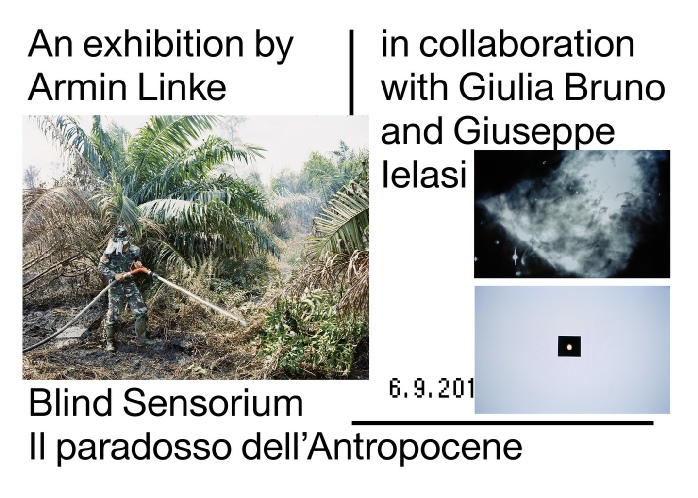Press Release
Blind Sensorium. Il Paradosso dell’Antropocene is the culmination of ten years’ artistic inquiry by photographer and filmmaker Armin Linke and collaborators into the forces that change the face of the Earth. That the Earth’s surface is undergoing radical changes is visible to the naked eye. And yet, we see only the smallest fraction of these changes. Most of the Anthropocene—our present era in which human impact on the Earth has pushed the planet to the brink of climate change—remains invisible, even in its material processes. Knowledge of these radical changes to the Earth system is gathered mostly not through our own senses, but through vast technological infrastructures and the data they collect. Yet the knowledge generated by this technological sensorium is characterized by the blind spots of its own implication in the accelerated exploitation of nature. Armin Linke has followed scientists, politicians, and activists as he interrogates the conflictual and indeed often paradoxical relationship between science, economy, and political institutions. Blind Sensorium is a visual anthropology of the conflicted role human beings and modern capitalist societies play in the current planetary transformation.

Blind Sensorium. Il Paradosso dell’Antropocene
Matera (Italy)
06.09.2019 - 06.01.2020


© ArtCatalyse International / Marika Prévosto 2019. All Rights Reserved
The first part of the exhibition is situated in the Ex scuola media "Alessandro Volta" and titled Blind Images. It presents a wide selection from Linke’s photographic archive, staged as a multilayered laboratory. In these images from around the world, Linke demonstrates in particular how “architecture” and “design” can no longer be perceived in traditional ways in a time where human-
The next chapter of the exhibition is entitled The Image of Time and it takes place in the archeological storage depot of the National Archeological Museum “Domenico Ridola” just a few steps across from the first venue. The depot houses thousands of archeological objects. The vast majority of artifacts are from the period 1000 BCE to 1000 CE. But there are also many objects that document human settlements from the end of the last Ice Age and the so-
The final chapter of the exhibition, entitled The Deep Time of Now, is housed in the same building. This consists of a major synthesis of more than a decade of fieldwork featuring a full-
Curated by Armin Linke and Anselm Franke
Commissioned and produced by Fondazione Matera-
Exhibition September 6, 2019 -
